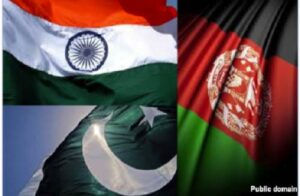
KABUL (SW) — President Donald Trump has pushed his military and national security advisers in recent days to pull all U.S. troops out of Afghanistan amid concerns about a major coronavirus outbreak in the war-torn country, NBC reported.
Trump complains almost daily that U.S. troops are still in Afghanistan and are now vulnerable to the pandemic, the report said. His renewed push to withdraw all of them has been spurred by the convergence of his concern that coronavirus poses a force protection issue for thousands of U.S. troops in Afghanistan and his impatience with the halting progress of his peace deal with the Taliban, officials told NBC.
They said the president's military advisers have made the case to him that if the U.S. pulls troops out of Afghanistan because of the coronavirus, by that standard the Pentagon would also have to withdraw from places like Italy, which has been hit particularly hard by the pandemic, officials said.
"There is concern from a variety of places that we could leave Afghanistan," one senior U.S. official said, pointing to concerns voiced by U.S. allies, members of Congress and U.S. military officials.
One senior administration official and a defense official said that while the withdrawal of U.S. troops from Afghanistan because of the coronavirus has been under discussion, a more likely outcome would be to consolidate American forces at bases in one or two parts of the country.
U.S. defense officials says cases of the coronavirus in Afghanistan are likely to be drastically underreported, estimating there could be at least 10 times as many cases there as the government has officially tallied. As of Monday, the Afghan Ministry of Public Health reported 1,703 confirmed cases of COVID-19 and 57 deaths in a country with an estimated population of 35 million.
But in March the Afghan minister of public health, Ferozuddin Feroz, warned that as much as half of the country's population could become infected and more than 100,000 could die without more precautions like hand washing and lockdowns in more populated areas.
ENDS





